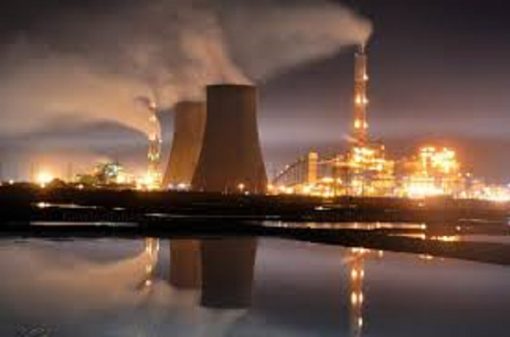Boiler Tube Temp. Monitoring System
Boiler Tubes Temperature Monitoring System
 In a power plant, boilers play a significant role in improving the efficiency of energy generation and optimal usage of fuel used to generate energy. In boilers, transmission of heat takes place through the tube wall to convert water into high-pressure steam, this leads to high temperature corrosion on the fireside as well as on the waterside. On fireside, there can be attack by fly ash as well as salt deposit, on waterside, the reaction between water and pipe material is accelerated due to high temperatures. There is a tendency of salt deposition on the inner surface of the tube. The formation of oxide layer and deposits may decrease the heat transfer from fireside to waterside leading to an increase in tube wall temperature and its failure. Additionally, the low-grade coal has high slagging and fouling potential, which can also cause overheating of boiler tubes and puncturing of the same, leading to steam leaks.
In a power plant, boilers play a significant role in improving the efficiency of energy generation and optimal usage of fuel used to generate energy. In boilers, transmission of heat takes place through the tube wall to convert water into high-pressure steam, this leads to high temperature corrosion on the fireside as well as on the waterside. On fireside, there can be attack by fly ash as well as salt deposit, on waterside, the reaction between water and pipe material is accelerated due to high temperatures. There is a tendency of salt deposition on the inner surface of the tube. The formation of oxide layer and deposits may decrease the heat transfer from fireside to waterside leading to an increase in tube wall temperature and its failure. Additionally, the low-grade coal has high slagging and fouling potential, which can also cause overheating of boiler tubes and puncturing of the same, leading to steam leaks.
Moreover power plants experience varying demands that directly affect boiler tubes and the need for continuous monitoring is recognized as a high priority.
To ensure efficiency, optimized fuel consumption, reliability and availability of boiler unit, it is essential to monitor metal tube temperatures of various sections of the boiler i.e. Superheater tubes, Reheater tubes, Furnace walls, Boiler generating tubes which, helps to identify common fault reasons such as:
- Leakages, breaks, blockage etc. and help determine the safety in pressurized boiler parts.
- identifying residual deposits by understanding temperature differentials in different sections.
Masibus has proven solution for boiler tube temperature monitoring which is reliable, scalable, easy to maintain, and Hook-up with existing automation system. Also It addresses the specific application challenges of the process with the lowest cost of ownership and highest ROI to the users.
- Lower cost of ownership
- Increased efficiency by quick detection of inefficient heat transfer due to deposit and scale build up
- Reduced downtime
- Increased availability by avoiding unscheduled outages
- Reduced secondary damage
- Increased personal safety
- Increased availability and tube life
- Increased operating profits
